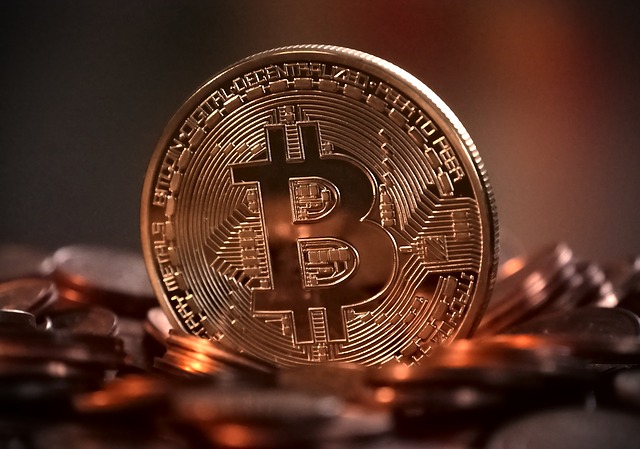The following article is an excerpt from Logan Brutsche’s book, The Layman’s Guide to Bitcoin. It you’re new to Bitcoin, his book is a great place to start.
The list of Bitcoin’s application today is quite small, however its current utility isn’t why most of its supporters are so emotionally and financially invested. Each supporter has a slightly different view on what exactly it promises to provide as the technology matures, but there are a few common themes.
1. Alternative/Upgraded Economic Infrastructure
First and foremost, it’s an alternative financial and economic infrastructure that rejects many of the rules and conventions of the old system. The more one believes the conventional financial systems are unsound, the more important it becomes to have a distinctly separate economic platform to escape to—one that is self-sufficient and resilient even in the case of systemic failure of conventional economies.
If one or many sovereign currencies or traditional wealth vehicles fail, Bitcoin is likely to survive and even thrive in such a collapse. The people developing this technology have no interest in a system that “might work” in the face of significant economic restructuring, because they see such a scenario as extremely likely, and the design strategy and structure of the technology reflects this.
The same qualities that make it a good escape hatch also make it an attractive upgrade. It’s open where the old systems are closed, transparent where they are opaque, and determined by math, protocols, and community consensus where the old systems are controlled by governments, political leaders, and banks.
Given time to mature, each of the bold claims listed earlier will apply not just to Bitcoin, but to a whole suite of new economic platforms and tools. This is because these claims ultimately come from the invention of the blockchain, of which Bitcoin is only the first application.
2. Free, Global Economic Activity
The Internet has become a platform for global community discourse that is quite out of the hands of any person, organization, or government to control at a fundamental level. This is unquestionably a positive change that contributes to the overall freedom of humanity. Anyone can be a blogger, participate in a forum discussion, or tweet about any global event. Citizens of most countries can consume all of these feeds without interference, and direct this discourse via upvotes and shares.

Even in places like China where it’s technically illegal to access certain information, and the government attempts to block access, tools like VPNs and Tor browsers enable users to ignore such restrictions. Further, such technology is only getting more effective and easier to use. It’s safe to say that this new, freer platform of communication called the Internet is here to stay, it will never be shut down, and it makes evading censorship and propaganda easier every year.
Bitcoin is the first step on the road to achieve similar ends for economic action. If progress continues in its current direction, we are moving toward a future where geopolitical boundaries, governments, and large corporations lose a significant portion of their power to dictate or control economic activity. This might apply to things like loans, real estate, intellectual property, and more. (Editor: Some of the furthest-along projects focusing on this new economic activity are discussed further in Logan’s book)
In fact, Bitcoin already provides this untamed economic engine—we just can’t use it for much yet, and many bells and whistles are still in-progress with half-finished blueprints. Like the Internet in the early 90s, the basics work, but the interfaces and cooler features are still being built and refined.
3. Reducing the Scope of Governance
Control over the money supply grants the governments of the world a large amount of power, and Bitcoin offers individuals an escape from this control by providing an alternative economic platform that ignores any attempt at governance. It’s no accident that a significant portion of the Bitcoin community has libertarian or anarcho-capitalist leanings, and this ideological leaning manifests throughout the design philosophy of the system.
Consider tax avoidance. If one seriously wanted to pursue this crime, Bitcoin and cryptocurrencies make it magnitudes easier than it otherwise would be. First, the government might not even know the criminal has bitcoin, because bitcoin doesn’t have personally identifying data stored on its system—there is no paper trail. Second, if the government did know of the hidden wealth, they don’t have the easy option of going to the bank and taking the money—they would have to actually force the criminal to give up their private key and any encryption passwords. Without this data, it is mathematically impossible for the bitcoins to be moved, as discussed further in this article.
That’s not to say that Bitcoin makes tax enforcement impossible, but it does become far more expensive and difficult, and therefore easier for citizens to escape or ignore. One day, it might be as easy as installing an app. Already, any user can install a Tor browser and escape any attempt at government censorship and monitoring. Bitcoin applies the same technology and principles to money already; you just have to be somewhat tech-savvy to be able to use them at the moment.
Much of governments’ power come from their control of the money system. They can easily enforce tax and inflate the currency, giving them two sources of somewhat limitless income. If Bitcoin adoption grows and more people hold their wealth in BTC, these sources of governmental income are threatened, and so too is the scope of governmental power.
The prediction is radical; the basic logic is sound: ungovernable currency would make inflation impossible and tax voluntary, which would shrink the power governments wield. That’s the question, of course: is it really ungovernable?
The community consensus is that it is.
If you want to read more about the nuts and bolts of how this could be possible, check out Logan Brutsche’s book, The Layman’s Guide to Bitcoin on Amazon.

